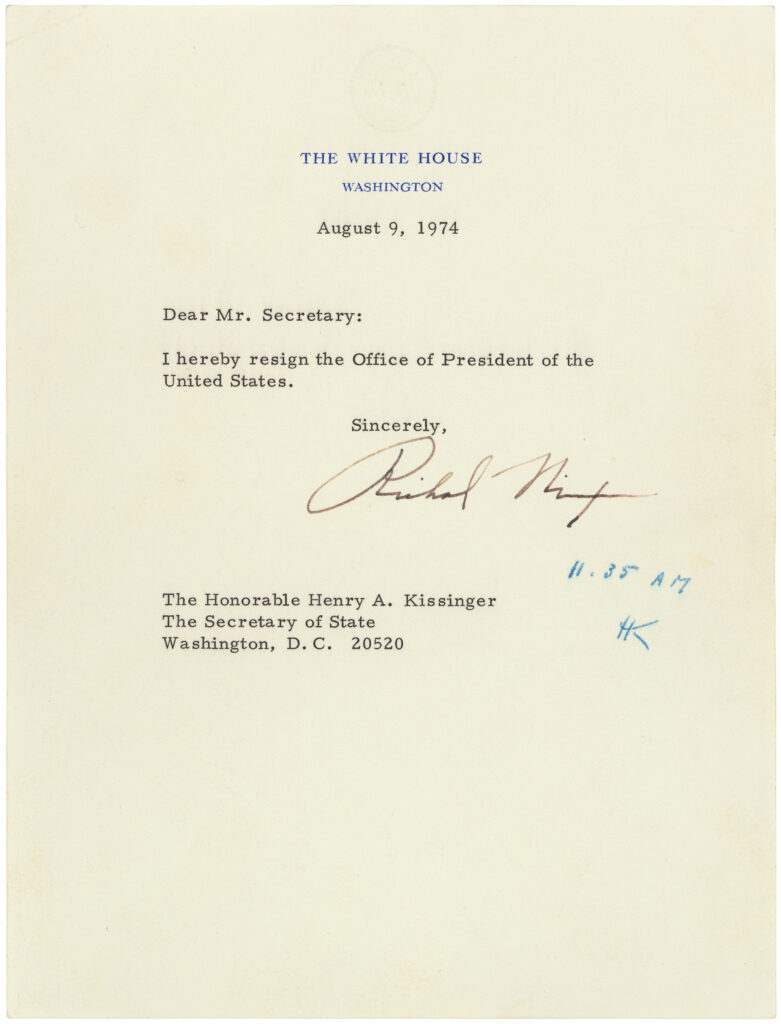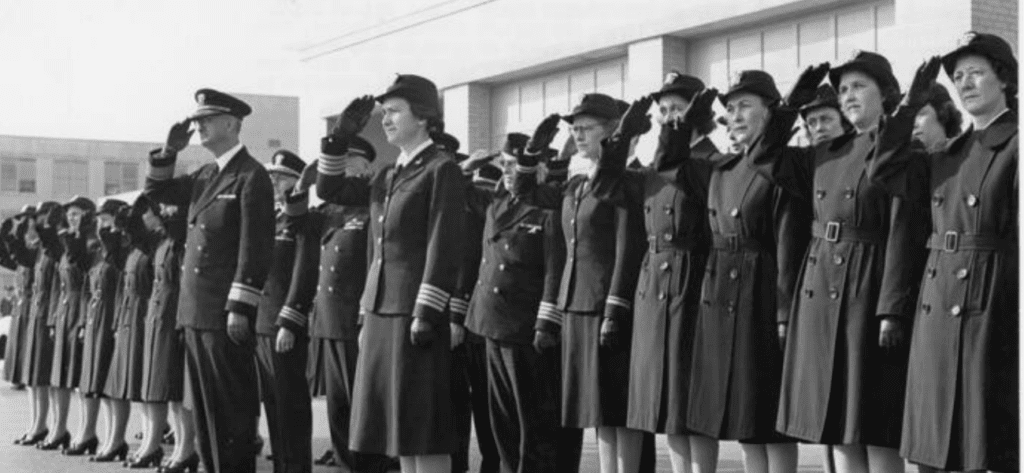
Thursday, August 1, 2024 – Thursday, September 12, 2024
East Rotunda Gallery
“I have never been a quitter. To leave office before my term is completed is abhorrent to every instinct in my body. But as President, I must put the interest of America first.” –Richard M. Nixon, August 8, 1974
During the night of June 17, 1972, five burglars broke into the offices of the Democratic National Committee at the Watergate office complex in Washington, DC. Investigation into the break-in exposed a trail that led to the highest levels of the Nixon administration and ultimately to the President himself. President Nixon resigned from office under threat of impeachment on August 9, 1974. A month later, the new President Gerald Ford issued a full pardon to the former President. President Ford then turned his attention to the vacant seat of Vice President. Under section two of the 25th Amendment to the Constitution, the President appointed former New York Governor Nelson Rockefeller as Vice President. After several months of congressional confirmation hearings, Rockefeller was sworn in as the 41st Vice President on December 19, 1974.

Richard Nixon’s letter resigning the Presidency, August 9, 1974
On the evening of August 8, 1974, President Nixon addressed the nation and announced his intention to resign. The next morning, White House Chief of Staff Alexander Haig presented this letter to President Nixon to sign. The President’s resignation letter is addressed to Secretary of State Henry Kissinger, who initialed it at 11:35 a.m.
General Records of the Department of State
View in National Archives Catalog




